Understanding the Role of Peer Interaction in ABA Therapy
Center-based Applied Behavior Analysis (ABA) therapy plays a pivotal role in promoting social skills development among children with autism. One of its key focuses is fostering meaningful peer interactions, which are essential for learning social norms, enhancing communication, and building lasting relationships. This article explores the methods used, benefits gained, and overall importance of peer engagement facilitated by center-based ABA therapy.
The Significance of Peer Engagement in Autism Support
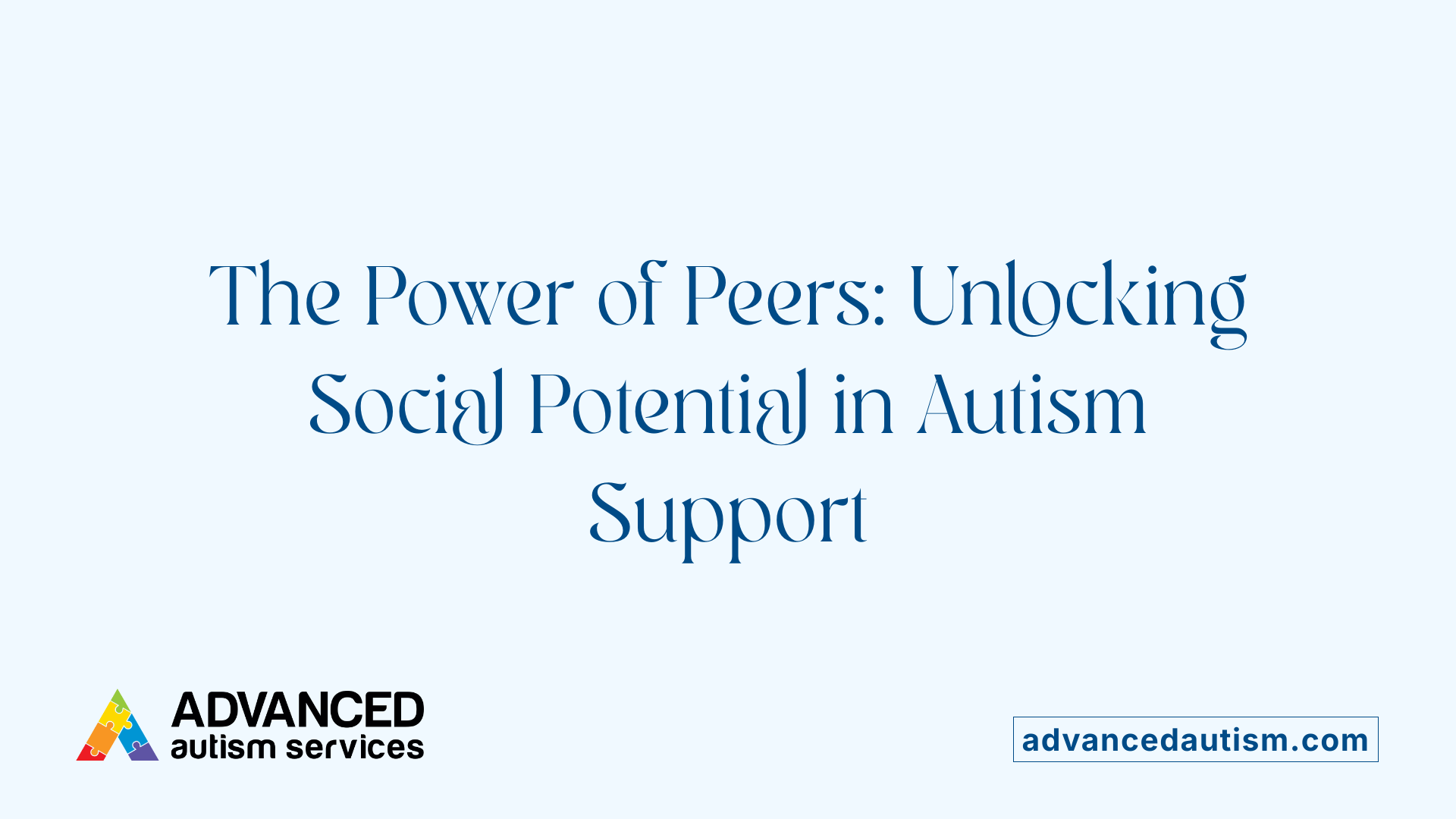
Why is peer engagement important in ABA therapy for children with autism?
Peer engagement plays a vital role in ABA (Applied Behavior Analysis) therapy, especially for children with autism. It offers real-life opportunities for children to practice social skills in natural, meaningful environments. When children interact with peers, they learn to understand social norms, such as sharing, turn-taking, and responding to social cues.
Engaging with peers allows children to observe and imitate appropriate behaviors, which is essential for social learning. These interactions help children build confidence, reduce feelings of social anxiety, and develop their communication skills — both verbal and non-verbal. Activities like role-playing, joint play, and shared tasks foster a sense of inclusion and help children form friendships.
Structured peer activities, such as playdates, group games, or cooperative projects, are effective strategies to promote social skill development. These approaches not only encourage children to express their thoughts and feelings but also support emotional well-being, self-esteem, and independence.
Incorporating peers into therapy also nurtures mutual respect and understanding, which can combat stereotypes and embrace diversity. Overall, peer engagement enhances social competence, improves quality of life, and helps children with autism experience more meaningful and lasting developmental progress.
How do behavioral and emotional benefits of peer interactions contribute to holistic development?
Beyond immediate social skills, peer interactions can have lasting impacts on emotional health. Positive social relationships with peers are linked to better mental health outcomes, such as reduced anxiety and depression.
Children engaging in peer play are more motivated and engaged in learning processes. They can generalize behaviors learned in therapy to everyday settings, making social skills more functional in real-world contexts.
In summary, fostering peer engagement in ABA therapy not only promotes skill acquisition but also supports emotional resilience, happiness, and a healthier self-image, forming a crucial part of comprehensive support for children with autism.
Methods to Foster Peer Engagement in Center-Based ABA Settings
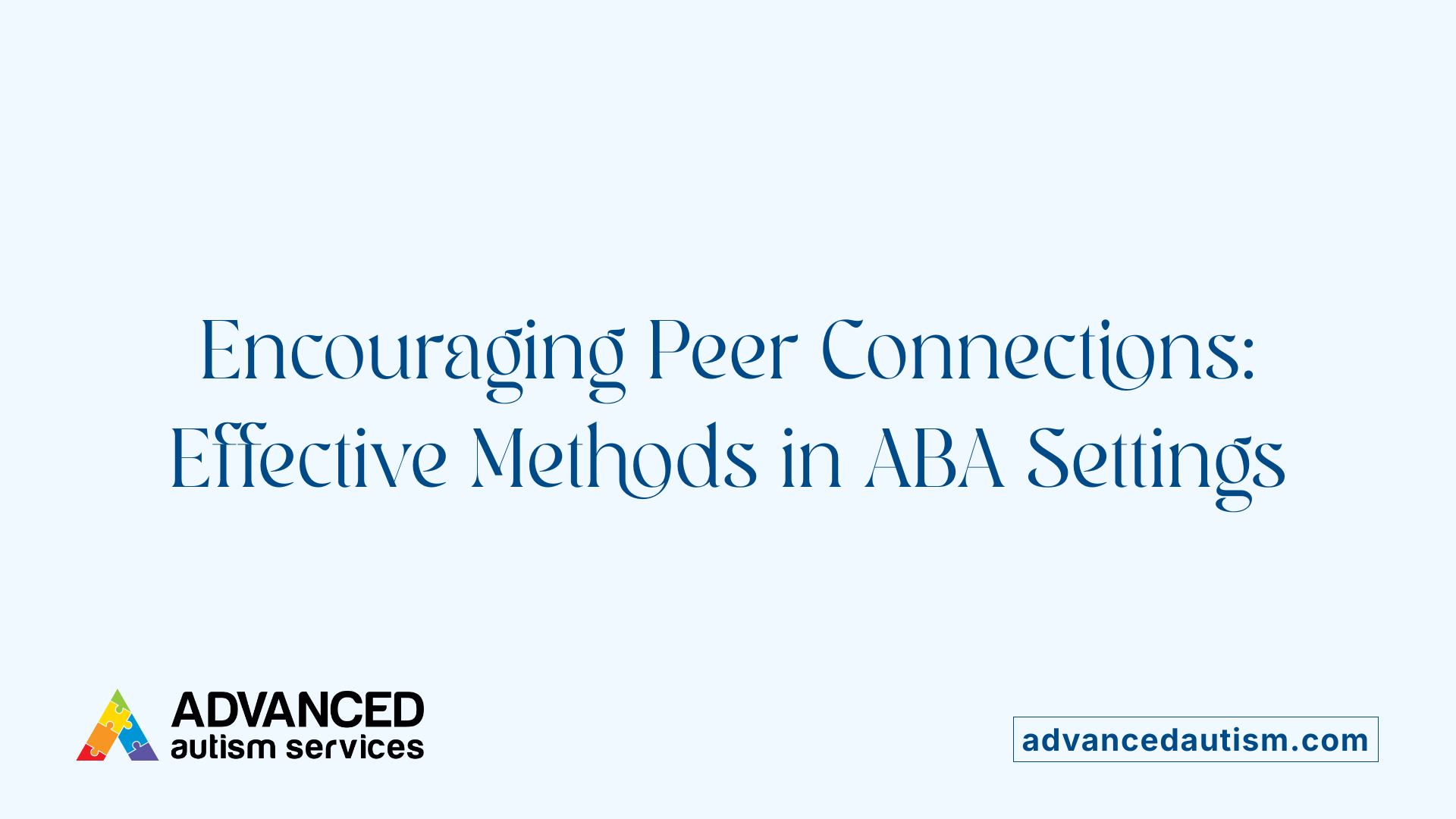
What methods are used in center-based ABA therapy to encourage peer engagement?
Center-based ABA therapy employs various strategies to encourage meaningful interactions among children with autism and their peers. One approach involves structured social skills training programs that use role-playing, social stories, and video modeling. These methods help children understand and practice social behaviors like sharing, turn-taking, and initiating conversations in a safe, supportive environment.
Peer-mediated interventions are also widely used. In this approach, typically developing peers are trained to support children on the autism spectrum, helping facilitate social interactions and model appropriate behavior. This not only promotes natural social learning but also fosters friendships.
Reinforcement strategies such as praise, encouragement, and rewards are incorporated into therapy sessions to motivate children and reinforce positive social behaviors. Creating inclusive environments within schools and community settings further supports natural peer interactions and friendship formation.
To make social activities more engaging, therapists design scenarios that consider sensory and behavioral needs of children, ensuring they feel comfortable participating. Technology tools like mobile apps, virtual reality, and AI platforms are increasingly adopted to supplement social skills development by providing structured practice scenarios in an interactive way.
Overall, these strategies aim to create a supportive and engaging space where children with autism can learn social norms, build communication skills, and develop lasting peer relationships.
How Center-Based ABA Promotes Peer Interaction and Social Skills Development
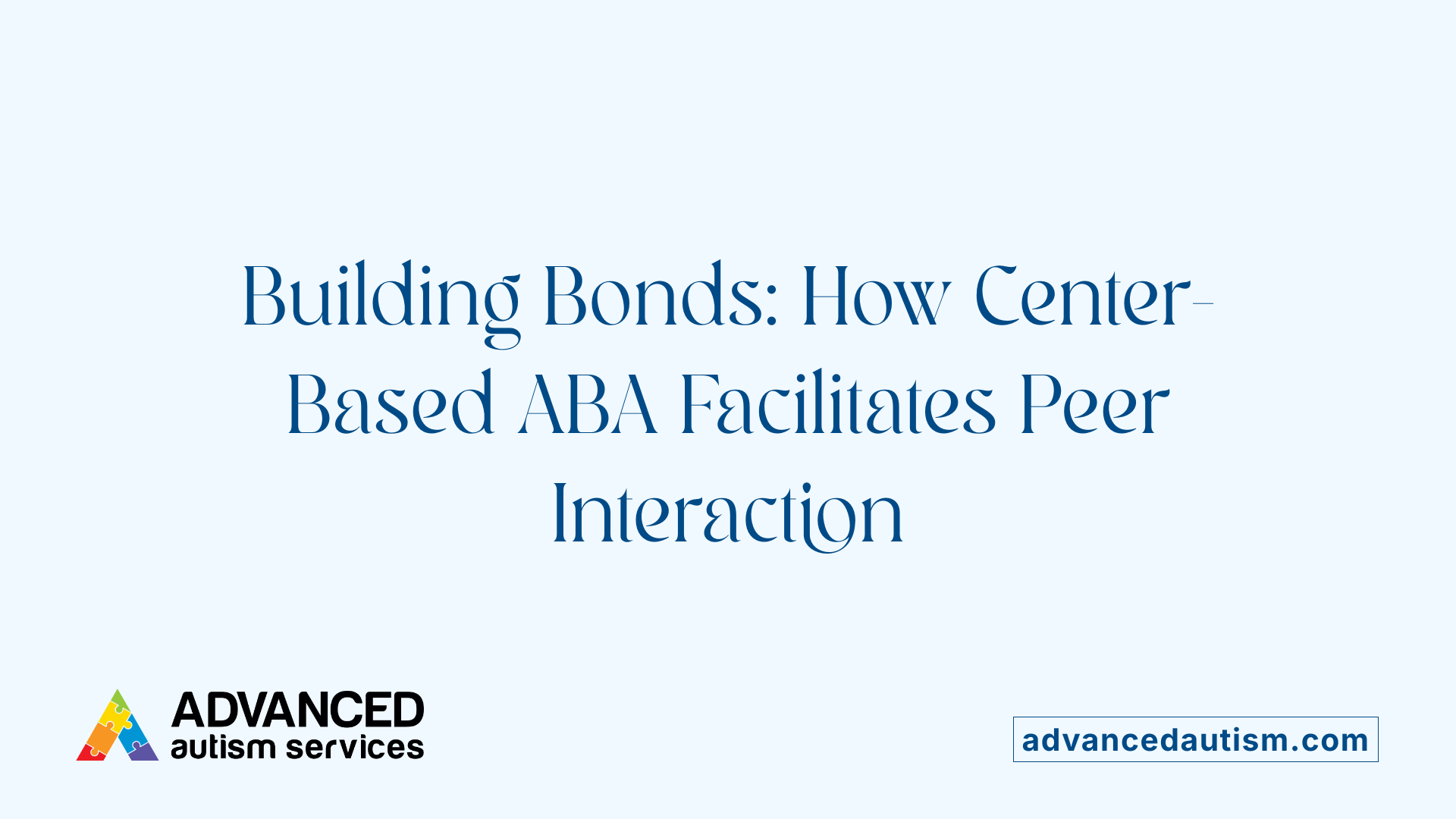
How does center-based ABA therapy promote peer interaction among children with autism?
Center-based ABA therapy encourages peer interaction by creating a structured and engaging environment specifically designed for social skill growth. In these settings, children participate in group activities and play sessions under the supervision of trained therapists who use evidence-based methods. Techniques such as positive reinforcement and modeling are employed to promote sharing, turn-taking, and effective communication.
Through play-based activities—like role-playing and cooperative games—children naturally develop social cues and behaviors. These sessions are crafted to be highly motivating, encouraging children to interact with peers actively. Regular contact with other children working toward similar goals boosts motivation, helps in the generalization of skills, and builds social confidence.
The environment acts as a real-world setting where children can practice social behaviors with professional guidance, which supports their overall development in social skills and emotional understanding.
How does center-based ABA therapy contribute to developing social skills through peer interactions?
Center-based ABA therapy promotes social skill development through structured peer engagement and naturalistic learning opportunities. Children are encouraged to interact with multiple peers, fostering skills such as turn-taking, sharing, and cooperative play.
Therapists provide immediate feedback and reinforcement during interactions, which helps children learn appropriate behaviors in real-time. Techniques like role-playing and social skills groups help improve communication, empathy, and emotional regulation.
The use of modeling positive behaviors and reinforcing successful social interactions aid in transferring these skills to new environments, including school and community settings. Overall, these therapy settings create a consistent space for targeted social skills practice, preparing children for everyday social challenges and improving their social confidence.
Additional Strategies and Tools
| Strategy/Tool | Description | Benefits |
|---|---|---|
| Structured Playdates | Organized peer play sessions to practice social skills in natural settings. | Enhances social engagement and generalization. |
| Group Activities | Participating in shared tasks like art projects or outdoor games. | Promotes teamwork and communication skills. |
| Role-Playing & Social Stories | Using pretend scenarios to teach social responses. | Improves understanding of social cues. |
| Reinforcement Strategies | Rewards for positive social behaviors to encourage repetition. | Increases motivation and skill retention. |
| Technology Tools | Use of apps and virtual platforms for social skills practice. | Provides additional opportunities for learning. |
Peer interaction during ABA therapy not only helps children with autism learn essential social behaviors but also encourages motivation and generalizes these skills across different real-world situations.
Enhancing Emotional Well-Being and Self-Confidence Through Peer Interaction
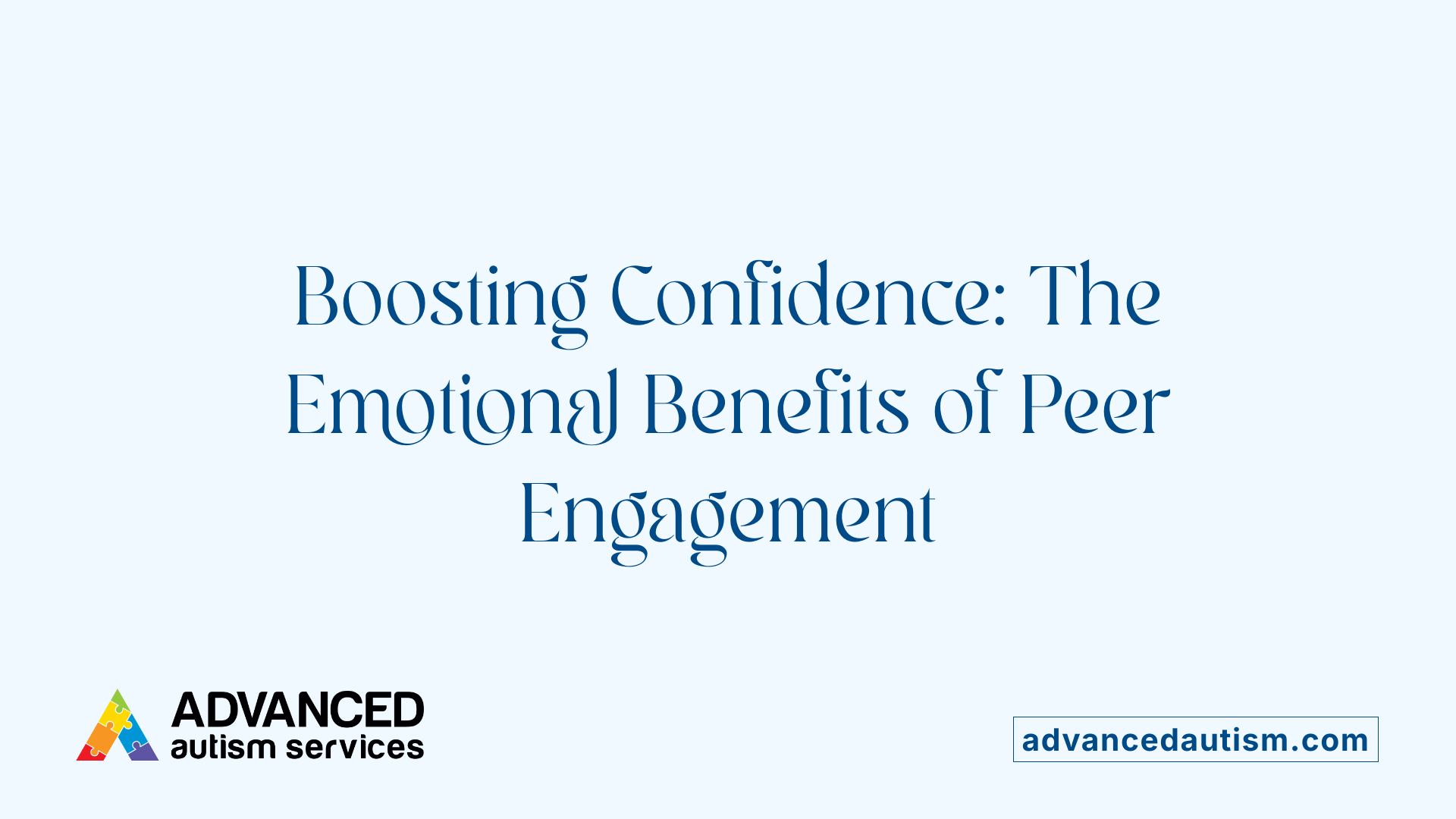 Building friendships and acceptance is a fundamental aspect of peer interaction for children with autism. When children engage with peers, they learn to navigate social norms such as sharing, turn-taking, and responding to social cues. These interactions foster a sense of belonging and acceptance, which is crucial for their emotional development.
Building friendships and acceptance is a fundamental aspect of peer interaction for children with autism. When children engage with peers, they learn to navigate social norms such as sharing, turn-taking, and responding to social cues. These interactions foster a sense of belonging and acceptance, which is crucial for their emotional development.
Research shows that such social experiences not only help children feel connected but also significantly boost their self-confidence. Forming friendships provides emotional support and validation, helping children develop trust and a positive self-image.
Reducing anxiety and depression is another vital benefit of peer interactions. Engaging with peers in structured and safe environments, especially within center-based ABA therapy, helps children become more comfortable in social settings. These interactions serve as protective factors, lowering feelings of social isolation and emotional distress.
Supporting emotional and social well-being through peer engagement contributes to overall healthier mental states. Children learn to express their thoughts, feelings, and interests more effectively, which enhances their ability to navigate everyday social situations. Strategies such as group activities, playdates, and naturalistic teaching methods facilitate these benefits.
In sum, peer interactions foster social skills, emotional resilience, and a sense of belonging. They encourage children with autism to develop into confident, socially competent individuals capable of forming meaningful relationships and participating fully in their community.
| Aspect | Benefits | Supporting Strategies |
|---|---|---|
| Friendship Formation | Sense of belonging, acceptance, emotional support | Playdates, group activities, social stories |
| Skill Development | Social norms, communication, behavior imitation | Role-playing, modeling, reinforcement |
| Emotional Well-Being | Reduced anxiety and depression | Safe peer environments, positive reinforcement |
| Self-Confidence | Increased independence, motivation | Structured play, success experiences |
Overall, facilitating peer interactions through ABA therapy and related strategies can significantly improve emotional health and help children develop a stronger sense of self.
Supporting Family Engagement and Learning Opportunities at Home
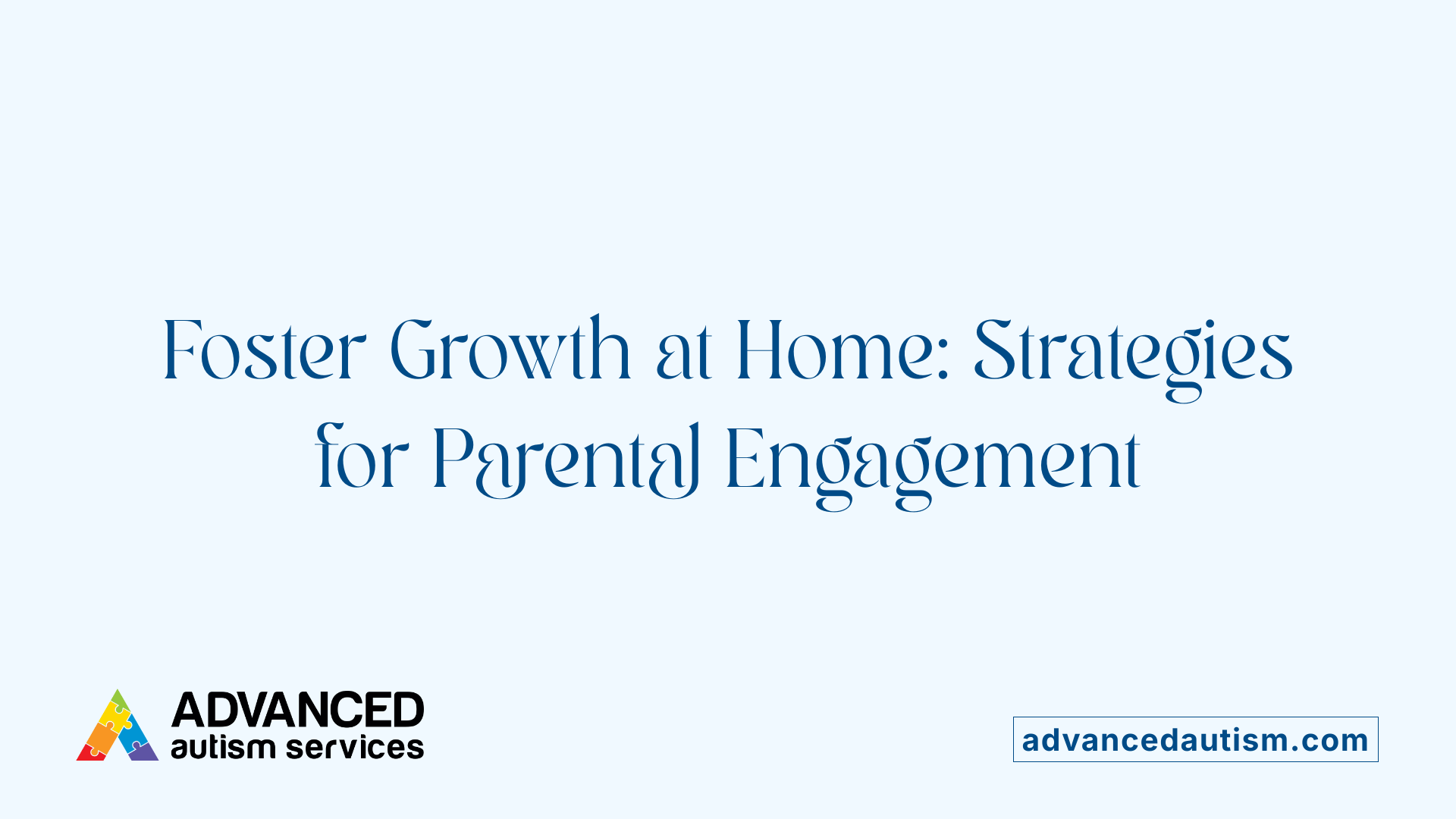
Parental involvement strategies
Parents and caregivers play a vital role in fostering social skills development. Engaging actively in your child's social learning involves creating consistent routines, modeling positive social behaviors, and providing opportunities for practice. Building a supportive environment at home encourages children to apply skills learned in therapy or school.
Modeling and practicing social skills at home
Children learn a great deal through observation. Demonstrate polite greetings, turn-taking during conversations, and sharing through daily interactions. Practice social scenarios with your child, such as asking for help or expressing likes and dislikes, to build confidence.
Using visual supports and reinforcement at home
Visual tools like charts, social stories, or cue cards can guide children through social routines. Reinforce successes with praise, treats, or preferred activities. Recognizing small achievements boosts motivation and reinforces positive behaviors.
Creating routine social opportunities
Establish regular social activities such as playdates, family outings, or community events. Consistent exposure to social environments allows children with autism to generalize skills and feel more comfortable in real-world settings.
| Strategy | Example Activities | Benefits |
|---|---|---|
| Modeling social behavior | Demonstrate sharing and greetings | Enhance understanding and imitation |
| Visual supports | Social stories for dinner time | Clarify expectations and routines |
| Reinforcement | Praise after successful interaction | Increase motivation and confidence |
| Routine social opportunities | Weekly playdate or park visits | Build real-world social skills |
By actively participating in your child's social development through these methods, you help create a strong foundation for lifelong social skills and emotional well-being.
Building a Foundation for Lifelong Social Skills
Center-based ABA therapy's emphasis on peer interaction and social skills training creates a sustainable foundation for children with autism to thrive socially. By incorporating evidence-based strategies, utilizing technological tools, and fostering inclusive environments, these programs help children develop essential skills that extend beyond therapy sessions into school and community life. The collaborative efforts of therapists, peers, and families ensure that children are supported in building friendships, gaining confidence, and achieving social independence, ultimately enhancing their overall well-being and quality of life.
References
- Social Skills Through Peer Interaction in Autism
- Peer Play in Cleveland ABA Therapy
- What is Cognitive Behavioral Therapy?
- Applied Behavior Analysis (ABA)
- The Role of Play in ABA Therapy: Making Therapy Fun
- Benefits of Center-Based ABA Therapy
- Choosing Between Home-Based and Center-Based ABA
- Applied Behavior Analysis (ABA)
- Home Vs Center ABA Therapy: Which Is Right For Your ...
- ABA Therapy for Social Skills: Building Connections



